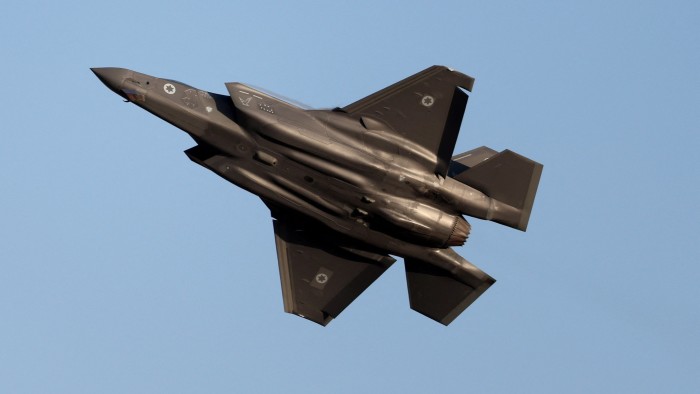Unlock the Editor’s Digest for free
Roula Khalaf, Editor of the FT, selects her favourite stories in this weekly newsletter.
Sir Keir Starmer’s government will face a High Court challenge this week over the export of components for the F-35 fighter jet used by Israel.
Campaigners at Palestinian human rights organisation Al-Haq are taking legal action against the Department for Business and Trade over the UK’s supply of critical parts for the combat aircraft.
The Labour government last September suspended some export licences to Israel for arms used in military operations in Gaza after a British government review found possible breaches of international humanitarian law by Israel.
However, components for the Lockheed Martin F-35 Lightning II fighter jet not sent directly to Israel were exempted. UK officials determined that suspending critical components within a global pool of parts could harm the maintenance and operations of F-35s in other nations.
The UK government, whose legal team is led by Sir James Eadie KC, who represents the government in important cases, contends that its decision not to suspend all arms export licences was lawful and justified.
The claimants say that the decision breaches the UK’s international legal obligations, including a duty to prevent genocide. The UK government “continues to permit the export of parts for F-35 fighter jets responsible for significant devastation in Gaza”, they argue in court papers.
A judicial review is due to begin on Tuesday.
In court papers, the Department for Business and Trade argues there was a “good reason” not to exempt the F-35 components. Suspending their exports would have a negative impact on international security, including for Nato, it says.
Government lawyers highlight the “gravity of the risks to the F-35 programme, and to international peace and security if the F-35 programme were to be compromised” by stopping the exports.
An obligation to prevent grave breaches of international humanitarian law relates to “actual knowledge” that such a breach would take place, they add.
“The UK has assessed that there is a ‘clear risk’ that Israel might commit a serious violation of international humanitarian law, but that is a much lower threshold than actual knowledge,” they say.
The claimants, whose legal team includes Phillippa Kaufmann KC and Raza Husain KC, say that the decision to carve out the F-35 components was based on flawed and irrational reasoning. They contend that the UK’s duty to prevent genocide relates to whether there is a “serious risk” of it taking place, not necessarily whether it has already been committed.
The government has a duty to “respect and ensure respect” for the Geneva Conventions, which protect civilians in war zones, “in all circumstances”, they say.
“The fact that those parts are now being transferred indirectly to Israel via the United States of America, rather than provided directly to Israel, does not minimise the severity of their impact on the ground in Gaza,” they write.
A government spokesperson said it was limited in what it could say about “ongoing legal proceedings”, but added the state was “fully committed to upholding our responsibilities under domestic and international law”.




